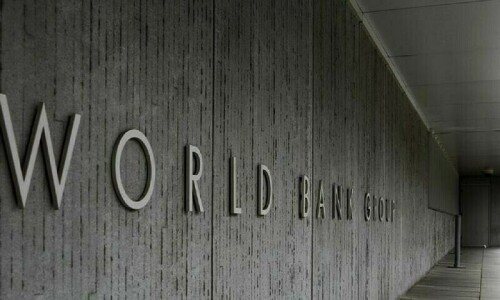CLIMATE change is addressed at two levels. This includes conversations in the international arena and actions on the home theatre. The global climate conversation takes place every year at an annual summit, using a multilateral platform to reach negotiated agreements on contentious issues. The outcome of climate summits has an impact on every country, with varying degrees of intensity, depending on the national circumstance. The two hotly contested issues at the annual gatherings of parties revolve around finance and timelines for mitigation. The Conference of Parties (COP) has expanded to include civil society organisations, environmental activists, private sector, scientists and many more to optimise the two-week duration for pitching views and networking to forge alliances.
However, real work for each country begins once representatives return to their home base and review COP outcomes to undertake a National Stock Take (NST). This is an important exercise because it puts policymakers face to face with a reality closer to home and more poignant in impact. The Nationally Determined Contributions (NDC) require each country to make mitigation and adaptation commitments. These may provide a rationale at negotiations for the inability to meet commitments, especially if it is linked to external finance. But that doesn’t stop climate from changing and unleashing devastation. The COP outcome is a reality-check moment of reckoning.
This year was the first Global Stock Take (GST) after the 2015 Paris Agreement to assess progress on commitments. The outcome is a stark reminder of some harsh truths. The lethargic pace is increasing the risk factor for one half of humanity. The need for 40pc emissions reduction by 2030 and 60pc by 2035 is unlikely to materialise. The pledges in finance fall short by trillions of dollars in meeting the needs of the Global South.
The simple truth is that higher the vulnerability, greater the risk. If this is compounded by resource crunch, capacity constraints and lack of technology, the challenges are likely to get amplified.
Pakistan is a classic case of governance shortcoming, maladaptation and climate injustice. The country stands at a critical juncture of its history, pummelled by multiple crises, to decide its future trajectory. The task of providing basic needs and amenities to a population of 240 million, growing at an annual rate of 2.55pc, with an economy in dire straits and a 40pc rate of inflation needs urgent solutions that cannot wait for climate finance or COP decisions to seek relief.
The need for 40pc emissions reduction by 2030 is unlikely to materialise.
The one clear takeaway from climate summits is the fact that climate finance will never be enough to meet the needs of vulnerable populations in the world. Each country will also have to take responsibility to reduce risks, build capacity, invest strategically and tap multiple avenues to increase revenue flows.
Looking at its location and resources, Pakistan will have to choose between past policies and new options to evaluate risks associated with business as usual and shifting stance to embrace change. The NST includes looking at current social, economic and environmental indicators against a political backdrop of past performance, and forging a consensus on the way forward. Changing climate means drastic shifts in all sectors and concomitant changes in doing business to brave impending upheavals.
Pakistan has the potential to transform and carve a new future for itself. Its location, geography and topography make it ideally suited for trade, transit and tourism. Peace and prosperity go hand in hand to unlock new opportunities for growth and development. A perspective change in narrative is needed to course correct. Therefore, the NST must take into account the deteriorating impact of human security on peace and stability. In future, all calibrations in setting strategic goals – from geopolitical shifts in alignments to changes in national politics and regional arrangements – will be done with a view to strengthening economic cooperation and safeguarding national security. The change in climate and its impact on natural resources will also redefine positioning within and beyond borders. Destabilisation in society at a time of acute scarcity will accelerate chaos and hasten the unravelling of existing systems.
It is very important to put climate at the centre of development plans and at the heart of security conversations to prepare for transitioning to a different world and way of doing business. The emerging global order is likely to be less generous and more transactional in its functions. With time running out, Pakistan has much to take stock of and many important decisions to make.
The writer is chief executive of Civil Society Coalition for Climate Change.
Published in Dawn, January 8th, 2024












































